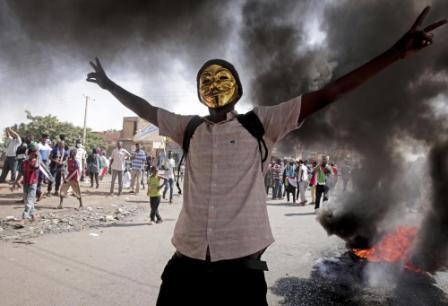Sudanese professionals reject UN-brokered mediation with coup leaders
January 9, 2022 (KHARTOUM) – The Sudanese Professionals Association (SPA), the spearhead of peaceful protests that toppled the former regime in 2019, rejected the United Nations initiative to facilitate a Sudanese-led comprehensive dialogue to end the current political crisis.
Sudan’s transition parties have been in open crisis over the implementation of the transitional reforms for about six months. Last October, the military component seized power triggering anti-coup protests that resulted in the death of 62 people.
On Saturday, Volker Perthes launched a political process aiming to gather all the Sudanese stakeholders to reach a roadmap and a timeline for its enforcement before holding general elections.
The SPA, on Sunday, rejected to take part in such a conference involving the military component.
“We affirm our total rejection of this call, which aims at normalization with the criminal putschists of the military council and their fascist authority,” read a statement issued by the Sudanese professionals.
The statement further referred to the three no’s raised by the protesters (no negotiations, no recognition, and no compromise) saying the solution begins with the collapse of the transitional military council and their trial for the crimes and massacre committed against the Sudanese people.
The announcement of the UN initiative comes after huge international pressures led by the European Union and the Troika countries particularly the U.S. to convince the coup leaders in Sudan to negotiate with Forces for Freedom and Change in Sudan (FFC).
But the SPA took the opportunity to voice their criticism against the German diplomat.
The professional denounced what they described as “controversial” efforts led by the UN envoy to support the October 25 coup, alluding to his involvement in the local mediation that brokered the al-Burhan-Hamdok deal.
“Volker’s practices breach the founding principles and mission of the international organization supporting the aspirations of peoples for freedom, peace and decent living,” said the SPA.
After the fall of the former regime, the Sudanese professional pushed for the appointment of Abdallah Hamdok as prime minister. However, they quickly criticised him and the group split into two factions.
The mainstream that issued this statement quit the FCC and become close to the Resistance Committees, the spearhead of the anti-coup protests.
After the coup, the Sudanese military leaders opted for violent repression and reinstated the former security officials.
Some of the armed groups that joined the transitional government backed the military coup while others preferred “proactive neutrality” to narrow the gaps between the military and civilians. However, their position has been perceived as similar to the first faction.
The FFC groups are also divided over this initiative, some are favourable but others say wanting more clarifications, fearing that Perthes seek to find a quick exit in line with the military initial plans.
The Quartet, Saudi Arabia, the UAE, the UK and the U.S. welcomed the move.
Egypt, for its part, welcomed the UN initiative calling on the Sudanese to swiftly agree on a new prime minister.
“Egypt also stresses that the security and stability of Sudan is an integral part of the security and stability of Egypt,” concluded the statement.
The African Union until now did not react to the UN-led process.
The military leaders in Sudan twice rejected to receive African Union delegations.
(ST)

